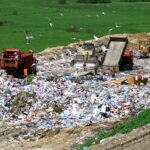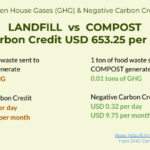Turning Grease Trap Waste into Gold: Unlocking Profit Potential in Recycling
The Economic Landscape Grease Trap Waste
 In a surprising turn of events, industries are discovering that what was once considered a burdensome byproduct—grease trap waste—can now be a source of untapped profit.
In a surprising turn of events, industries are discovering that what was once considered a burdensome byproduct—grease trap waste—can now be a source of untapped profit.
With advancements in recycling technologies, businesses are capitalizing on the economic opportunities that arise from converting grease trap waste into valuable resources.
Traditionally seen as an environmental challenge and a cost center for businesses, grease trap waste, comprised of fats, oils, and grease (FOG), is undergoing a transformation. Instead of viewing it as a mere nuisance, industries are recognizing the potential for significant financial gains through innovative recycling processes.
Biodiesel Production as a Profitable Venture
One of the most lucrative avenues emerging from grease trap waste recycling is the production of biodiesel. By extracting and refining the fats and oils from grease trap waste, businesses can create a renewable and marketable energy source. Biodiesel, derived from this waste, not only meets sustainability goals but also opens up new revenue streams.
Cost Savings and Operational Efficiency
Businesses adopting grease trap waste recycling are experiencing notable cost savings. Traditional methods of disposal, including landfilling and incineration, come with associated fees and environmental implications. By investing in recycling technologies, companies can reduce disposal costs, enhance operational efficiency, and turn what was once a financial drain into a source of savings.
Environmental Stewardship and Market Appeal
Consumers and stakeholders increasingly value businesses committed to environmental sustainability. Turning grease trap waste into profits not only aligns with eco-friendly practices but also enhances a company’s market appeal. Communicating a commitment to responsible waste management can attract environmentally conscious customers and partners.
Regulatory Compliance and Risk Mitigation
As environmental regulations become more stringent, businesses can navigate compliance challenges by integrating grease trap waste recycling into their operations. This not only mitigates the risk of regulatory penalties but also positions companies as proactive players in environmental stewardship.
Investment Opportunities in Grease Trap Waste Recycling
Entrepreneurs and investors are taking notice of the profit potential in grease trap waste recycling. From developing advanced recycling technologies to establishing biodiesel production facilities, there is a growing market for investments in this sector. Forward-thinking businesses are capitalizing on these opportunities to diversify revenue streams and contribute to a sustainable future.
Challenges and Future Outlook
While the potential for profits from grease trap waste recycling is substantial, businesses face challenges such as initial investment costs and the need for widespread industry adoption. However, the economic benefits, combined with advancements in technology, position grease trap waste recycling as a viable and lucrative endeavor for the future.
Conclusion
The narrative surrounding grease trap waste is undergoing a significant shift—from an environmental concern to a lucrative business opportunity. Industries that embrace grease trap waste recycling are not only contributing to a cleaner environment but also unlocking financial gains. As the market continues to recognize the economic potential in transforming waste into profit, businesses stand to reap the rewards of responsible and innovative waste management practices. Grease trap waste is no longer a liability; it’s a valuable asset waiting to be monetized.




